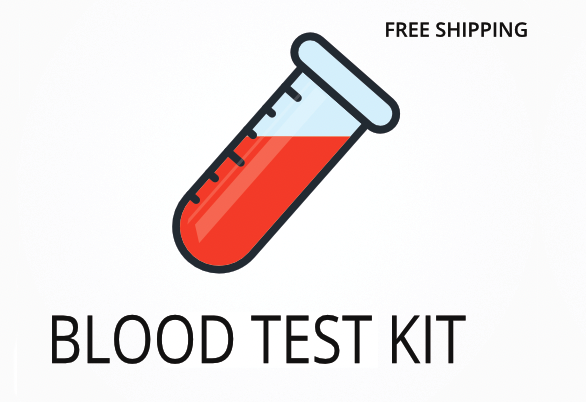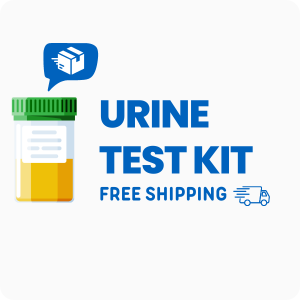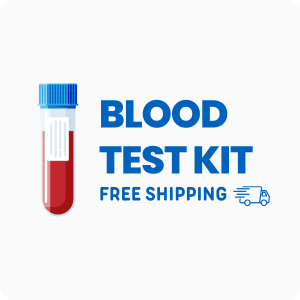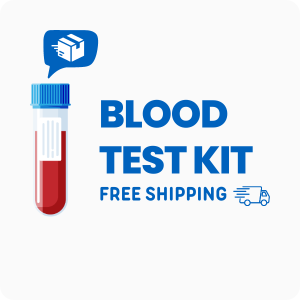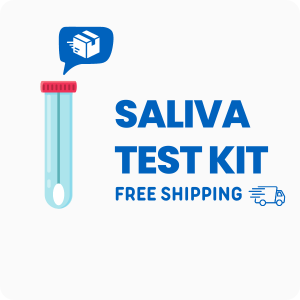Ordering the Chemical Immune Reactivity Screen | Cyrex Array #11
Ordering the Chemical Immune Reactivity Screen | Cyrex Array #11 helps identify how your immune system responds to common chemicals, even if your exposure levels are low. This test measures total antibodies (IgG, IgA, IgM) to a range of chemicals, which can help pinpoint immune reactions that may be linked to symptoms like joint pain, fatigue, or skin rashes. Interestingly, immune reactivity to chemicals can occur even when standard chemical exposure tests show negative results, making this test useful for those with unexplained symptoms.
When ordering, you gain access to specific benefits:
- Detects immune responses to a wide range of chemicals, including heavy metals and industrial compounds.
- Helps clarify if symptoms are related to chemical sensitivity rather than direct exposure.
- Supports targeted changes in your environment or diet based on your immune reactivity profile.
- Assists in monitoring immune system changes over time after reducing chemical exposure.
- Provides detailed antibody profiles (IgG, IgA, IgM) for more precise interpretation.
Who Should Consider Chemical Sensitivity and Immune Reactivity Testing
People who experience ongoing symptoms like brain fog, digestive discomfort, or skin irritation without a clear cause may benefit from this test. For example, someone who has tried eliminating foods and changing personal care products but still struggles with unexplained fatigue and headaches could use this test to check for immune reactions to chemicals in their environment.
Ordering may also be helpful in these situations:
- Persistent joint pain or muscle aches that do not improve with standard treatments
- Recurring skin rashes or eczema that flare up after using certain household products
- Unexplained mood changes or memory issues that coincide with exposure to cleaning agents
- Digestive issues that persist despite dietary changes and negative food sensitivity tests
- People who work in environments with frequent chemical exposure, such as salons or manufacturing plants, may have immune reactions even at low exposure levels
Testing for immune reactivity to chemicals can help identify specific triggers for symptoms, allowing for more focused changes in your daily routine or environment. Delaying this test may mean continued exposure to chemicals that trigger immune responses, which could make symptoms harder to manage over time. To move forward, consider ordering to gain more clarity about your immune system’s response to chemicals.
Preparing for Chemical Exposure Immune Response Testing
Fasting is not required for this test, but it’s important to review the kit instructions for any specific preparation steps. Always follow the guidance provided by your doctor or healthcare practitioner to make sure your sample is collected correctly and your results are as useful as possible.
Labs Included When Ordering Your Chemical Immune Reactivity Screen | Cyrex Array #11
| Test Name | Reference Range | Significance | Low and High Levels of Chemical Immune Reactivity Screen | Cyrex Array #11 |
|---|---|---|---|
| Mycotoxins and Industrial Chemicals | |||
| Aflatoxins | 0-19 | Aflatoxins are toxins from mold that can trigger immune responses and are linked to food contamination. This marker checks for immune reactivity to these toxins. | High levels mean your immune system is reacting to mold toxins, which may contribute to symptoms.
Low levels mean little or no immune response to aflatoxins. |
| Formaldehyde and Glutaraldehyde | 0-19 | These chemicals are found in disinfectants and building materials. The test checks if your immune system is reacting to them, which can cause respiratory or skin symptoms. | High levels mean your immune system is sensitive to these chemicals, possibly causing irritation.
Low levels mean minimal immune response to these compounds. |
| Isocyanate | 0-19 | Isocyanates are used in foams and paints. This marker shows if your immune system reacts to them, which can be linked to breathing or skin issues. | High levels mean your immune system is reacting to isocyanates, which may cause symptoms.
Low levels mean little or no immune response to isocyanates. |
| Trimellitic and Phthalic Anhydrides | 0-19 | These chemicals are found in plastics and resins. The test checks for immune reactions that may be linked to breathing or skin problems. | High levels mean your immune system is sensitive to these plastic-related chemicals.
Low levels mean minimal immune response to these anhydrides. |
| Benzene Ring Compounds | 0-19 | Benzene compounds are found in fuels and solvents. This marker checks if your immune system is reacting to these chemicals, which can be linked to headaches or fatigue. | High levels mean your immune system is reacting to benzene compounds.
Low levels mean little or no immune response to these chemicals. |
| Plasticizers and Bisphenols | |||
| BPA Binding Protein | 0-19 | BPA binding protein is related to exposure to bisphenol A, a chemical in plastics. This marker checks for immune reactivity to BPA exposure. | High levels mean your immune system is reacting to BPA or its binding protein.
Low levels mean minimal immune response to BPA. |
| Bisphenol A | 0-19 | Bisphenol A is used in plastics and food containers. This test checks if your immune system is reacting to BPA, which can be linked to hormone or immune symptoms. | High levels mean your immune system is sensitive to BPA.
Low levels mean little or no immune response to BPA. |
| Tetrabromobisphenol A | 0-19 | Tetrabromobisphenol A is a flame retardant in electronics. This marker checks for immune reactivity to this chemical, which can be linked to skin or breathing symptoms. | High levels mean your immune system is reacting to this flame retardant.
Low levels mean minimal immune response to tetrabromobisphenol A. |
| Tetrachloroethylene | 0-19 | Tetrachloroethylene is used in dry cleaning and degreasing. This test checks for immune reactions that may be linked to headaches or dizziness after exposure. | High levels mean your immune system is sensitive to tetrachloroethylene.
Low levels mean little or no immune response to this chemical. |
| Parabens | 0-19 | Parabens are preservatives in cosmetics and personal care products. This marker checks for immune reactivity to parabens, which can be linked to skin or hormone symptoms. | High levels mean your immune system is reacting to parabens.
Low levels mean minimal immune response to parabens. |
| Heavy Metals and Mixed Compounds | |||
| Mercury Compounds | 0-19 | Mercury is found in some fish, dental fillings, and industrial products. This test checks for immune reactions to mercury, which can be linked to neurological or immune symptoms. | High levels mean your immune system is reacting to mercury compounds.
Low levels mean little or no immune response to mercury. |
| Mixed Heavy Metals (Nickel, Cobalt, Cadmium, Lead, Arsenic) | 0-19 | This marker checks for immune reactivity to a group of heavy metals, which can be found in jewelry, batteries, and contaminated water. It helps identify if your immune system is reacting to these metals. | High levels mean your immune system is sensitive to one or more heavy metals.
Low levels mean minimal immune response to these metals. |
Reference ranges may change slightly as labs update their methods or as new research becomes available.
Chemical Immune Reactivity Screen | Cyrex Array #11 FAQ
Is there Chemical Immune Reactivity Screen | Cyrex Array #11 testing near me?
This test is provided as a kit that you can take to a local draw site—check the draw location link at the top of the page for options near you. For people with ongoing symptoms like fatigue or skin irritation, having a nearby collection site makes it easier to get tested quickly and avoid delays in finding answers.
How do I interpret the test results?
While your treating physician should review your results, we also offer a one-on-one test results review with our clinical team to help you understand your results and what they mean for your symptoms.
What is the cost of the test?
The price you see for this test includes standard shipping to you and return shipping to the lab, though draw fees may apply at your chosen collection site. Ordering this test can help you identify immune reactions to chemicals, which may speed up finding the right changes to reduce symptoms.
How often should I retest?
Retesting is usually recommended every 6-12 months, especially if you have made changes to your environment or symptoms have changed. Regular testing helps track your immune system’s response to chemical exposures over time.
How accurate is the test?
This test uses ELISA (enzyme-linked immunosorbent assay) to measure total antibodies to chemicals, with a specificity of 98% and sensitivity of 97%. TrueHealthLabs.com partners with CLIA-certified and CAP-certified laboratories to uphold rigorous testing standards for dependable results.
Important Notes
- It is recommended to be clear of immunosuppressants and/or corticosteroids for at least 60 days prior to taking this test. Please consult with your prescribing healthcare provider.
- Drink plenty of water 12-24 hours prior to the blood draw. Avoid fried, greasy, and buttery foods 6 hours prior to the blood draw.
- NOT AVAILABLE IN NEW YORK. SPECIMEN DRAWS CAN BE COMPLETED IN NEIGHBORING STATES.
- We are now accepting international orders. Sample must be received within 7 days. Additional return shipping fees may apply.
- READ: IMPORTANT Cyrex FAQs
- Due to circumstances beyond our control, pediatric blood draws are not included under Cyrex’s contracted phlebotomy. All patients 15 years of age and younger are included in the pediatric group. Pediatric blood draws must be scheduled by the parents at a laboratory of their choosing, and must be paid for by the parent at the time of service.
Medical Review Board
Reviewed by Jeff Donohue M.D. from Body Logic and Brady Hurst DC, CCCN. Written by True Health Lab’s team of editorial health contributors.
Disclaimer: This information is for educational purposes only and not intended as medical advice. Consult your healthcare provider for personalized guidance.
Why Customers Trust True Health Labs - What People are saying
Also rated 4.6 out of 5 based on 3452 ShopperApproved reviews- See all TrueHealthLabs.com reviews.


